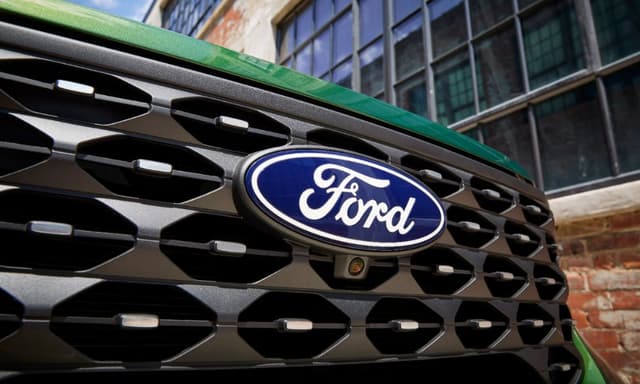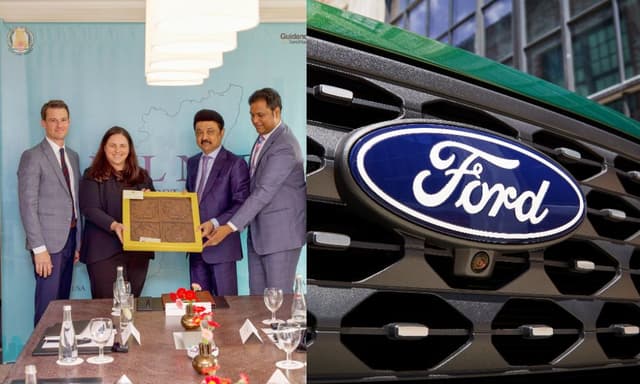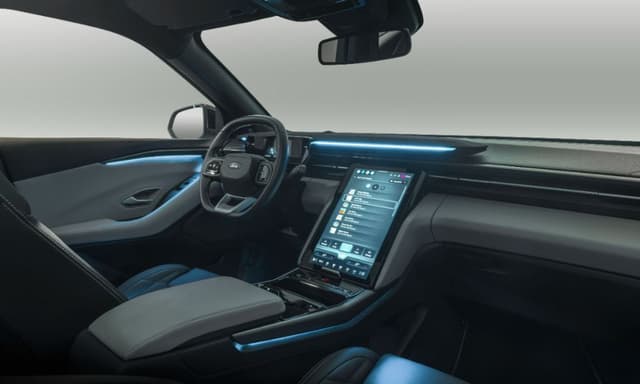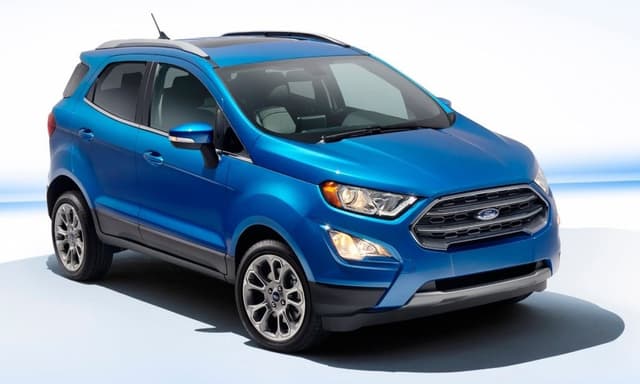Ford Announces Smart Mobility Plan & 25 Global Experiments Including Share-Car Project in India

Highlights
Ford is employing the 2015 Consumer Electronics Show's platform to demonstrate how it is using innovation to create advanced new vehicles and to help change the way the world moves by addressing transportation challenges.
It announced the Ford Smart Mobility plan via which the company will further explore the prospects in connectivity, mobility, autonomous vehicles, customer experience and big data. Ford also announced 25 mobility experiments around the world this year to test transportation ideas that will allow it to create better customer experiences, more flexible usership models and social collaboration that can reward customers.
The 25 mobility experiments from Ford include a unique, pilot project in India - Share-Car - that aims to create a model for easy vehicle sharing among small communities.
"Even as we showcase connected cars and share our plans for autonomous vehicles, we are here at CES with a higher purpose," said Ford President and CEO Mark Fields. "We are driving innovation in every part of our business to be both a product and mobility company - and, ultimately, to change the way the world moves just as our founder Henry Ford did 111 years ago."
25 global mobility experiments
The first steps for Ford Smart Mobility are 25 experiments - eight in North America, nine in Europe and Africa, seven in Asia and one in South America. Each experiment is designed to anticipate what customers will want and need in tomorrow's transportation ecosystem.
"We see a world where vehicles talk to one another, drivers and vehicles communicate with the city infrastructure to relieve congestion, and people routinely share vehicles or multiple forms of transportation for their daily commute," Fields said. "The experiments we're undertaking today will lead to an all-new model of transportation and mobility within the next 10 years and beyond."
The experiments address four global megatrends - explosive population growth, an expanding middle class, air quality and public health concerns, and changing customer attitudes and priorities - challenging today's transportation model and limiting personal mobility, especially in urban areas.
Fourteen of the 25 experiments are Ford-led research projects, and 11 are part of the company's Innovate Mobility Challenge Series. The experiments include:
Big Data Drive: Dearborn, Michigan
Fleet Insights: United States
Data Driven Insurance: London
Remote Repositioning: Atlanta
City Driving On-Demand: London
Dynamic Social Shuttle: New York, London
Car Swap: Dearborn, Michigan
Ford Carsharing: Germany
Share-Car: Bangalore, India: Ford will test the sharing concept in Bangalore, India that would allow small groups, such as co-workers, apartment dwellers and families, to share a vehicle among multiple drivers. This approach will help consumers who can't afford a car but want the benefits of owning one. Researchers plan to develop a model for vehicle scheduling and managing ownership.
- Rapid Recharge & Share: Dearborn, Michigan
- Data Driven Healthcare: The Gambia, West Africaundefined undefined
- Parking Spotter: Atlantaundefined undefined
- Info Cycle: Palo Alto, California
- Painless Parking: London
With the Innovate Mobility Challenge Series, Ford invited innovators and developers around the world to create solutions for specific mobility challenges in North America and South America, Portugal, Africa, India, China, England and Australia.
Challenges included finding technology solutions to identify open parking spaces in urban areas, better ways to navigate crowded cities and the use of navigation and other tools to help people gain access to medical care in remote areas.
Ford autonomous vehicles
Ford also highlighted the semi-autonomous vehicles it has on the road today and fully autonomous vehicles now in development for the future.
"We're already manufacturing and selling semi-autonomous vehicles that use software and sensors to steer into both parallel and perpendicular parking spaces, adjust speed based on traffic flow or apply the brakes in an emergency," said Raj Nair, Ford chief technical officer and group vice president, Global Product Development.. "There will be a Ford autonomous vehicle in the future, and we take putting one on the road very seriously."
Ford's semi-autonomous vehicle features available today include lane-keeping assist, adaptive cruise control, Pre-Collision Assist with Pedestrian Detection and active park assist - with Traffic Jam Assist coming.
A fully autonomous Ford Fusion Hybrid research vehicle is undergoing road testing. The vehicle uses the same semi-autonomous technology in Ford vehicles today, while adding four LiDAR sensors to generate a real-time 3D map of the surrounding environment.
The vehicle can sense objects around it using the LiDAR sensors, and uses advanced algorithms to help it learn to predict where vehicles and pedestrians might move.
"Henry Ford taught us long ago that a good business makes excellent products and earns a healthy return," Fields added. "A great business does all that while creating a better world. That is what continues to drive us each day."
Last Updated on January 8, 2015
Related Articles
Latest News
- Home
- News
- Auto Industry
- Ford Announces Smart Mobility Plan & 25 Global Experiments Including Share-Car Project in India














